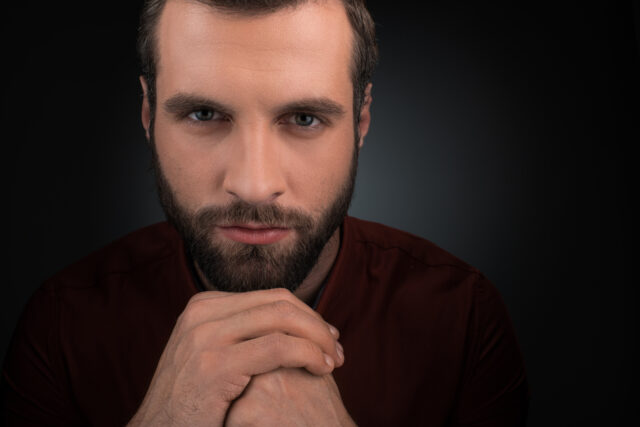Being vulnerable isn’t always easy.

It means opening yourself up to the possibility of being hurt, rejected, or misunderstood. But it’s also necessary for building deep, meaningful connections with other people. If you find yourself struggling with vulnerability, you’re not alone. Here are some common signs that you might be afraid to let your guard down, and more importantly, what you can do about it.
1. You avoid sharing your feelings or personal experiences.

Perhaps you change the subject when conversations get too deep, or you keep your emotions bottled up inside. Maybe you feel like no one really wants to hear about your struggles, or that sharing your true feelings would make you seem weak. But holding everything in can be isolating and exhausting. It prevents you from creating authentic bonds.
2. You don’t know how to ask for help or support.

Whether it’s a practical task or emotional support, you tend to try to handle everything on your own. You might feel like you need to be self-sufficient or that asking for help would burden people. But everyone needs a helping hand sometimes. Asking for support is a sign of strength, not weakness. It allows you to build deeper connections with other people and receive the care you need.
3. You’re quick to apologise, even when it’s not your fault.

You might say “I’m sorry” for things that are completely out of your control, or you might take the blame for situations that weren’t your responsibility. This habit can stem from a fear of conflict or a desire to please people. But constantly apologising can undermine your self-worth and make you feel responsible for things that aren’t your fault.
4. You struggle to receive compliments or positive feedback.

When someone compliments you, do you deflect or downplay their words? Maybe you feel unworthy of praise or uncomfortable with attention. But learning to accept compliments graciously is a way of acknowledging your own value and allowing yourself to be seen. It’s also a way of showing gratitude to the person who’s offering the compliment.
5. You don’t trust anyone.

Past hurts or betrayals can make it difficult to open up to new people. You might be afraid of being hurt again, so you keep your distance and avoid getting too close. But without trust, it’s impossible to build meaningful relationships. Learning to trust again takes time and effort, but it’s worth it for the deep connections it can bring.
6. You overthink and analyse everything.

You might spend hours replaying conversations in your head, analysing every word and gesture. You might worry about what other people think of you or whether you said or did the right thing. This constant overthinking can be exhausting and prevent you from being present in the moment. It can also lead to anxiety and self-doubt.
7. You have difficulty setting boundaries.

You might say “yes” to things you don’t want to do, or you might let people overstep your personal limits. You might feel guilty for saying “no” or worry about disappointing people. But setting boundaries is a must for protecting your energy, time, and emotional well-being. It’s a way of prioritising your own needs and ensuring that your relationships are healthy and balanced.
8. You avoid conflict or difficult conversations.

You might sweep problems under the rug or pretend everything is okay, even when it’s not. You might avoid confrontation or difficult conversations for fear of hurting someone’s feelings or making things worse. But avoiding conflict doesn’t make it go away. It can fester and grow, causing resentment and damage to your relationships. Learning to communicate openly and honestly, even when it’s difficult, is essential for healthy communication and resolving conflicts constructively.
9. You have difficulty saying “no.”
 Source: Unsplash
Source: Unsplash You might agree to things you don’t have time for or take on responsibilities that overwhelm you. You might feel obligated to please everyone or worry about what they’ll think if you decline. But saying “no” is a way of honouring your own limits and priorities. It’s a way of saying “yes” to yourself and your own well-being.
10. You compare yourself to other people and feel like you’re not good enough.
 Source: Unsplash
Source: Unsplash You might scroll through social media and feel jealous of other people’s seemingly perfect lives. You might compare your accomplishments to other people’s and feel like you’re falling short. But comparison is a thief of joy. It distracts you from your own unique strengths and talents. Instead of focusing on what you lack, celebrate your own successes and appreciate your individual journey.
11. You’re afraid of failure or rejection.

You might avoid taking risks or putting yourself out there for fear of failing or being rejected. You might play it safe and stay within your comfort zone, but this can prevent you from reaching your full potential. Remember that failure is a natural part of life, and it’s often a stepping stone to success. Embrace the possibility of rejection and don’t let fear hold you back from pursuing your dreams.
12. You have difficulty expressing your needs and desires.
 Source: Unsplash
Source: Unsplash You might downplay your own needs or feel guilty for wanting something. You might prioritise everyone else’s needs over your own, or feel like your desires are unimportant. But expressing your needs and desires is essential for healthy relationships and personal fulfilment. It’s a way of communicating your values and priorities and ensuring that your needs are met.
13. You have a perfectionist streak.
 Source: Unsplash
Source: Unsplash You might strive for perfection in everything you do, constantly striving to meet impossibly high standards. You might be afraid of making mistakes or appearing flawed. But perfectionism is a trap. It can lead to procrastination, anxiety, and burnout. It’s important to learn to accept your imperfections and embrace the messy, imperfect nature of life.
14. You’re afraid of being judged or criticised.
 Source: Unsplash
Source: Unsplash You might worry about what other people think of you or how they’ll react to your vulnerability. You might be afraid of being ridiculed, shamed, or rejected. But the truth is, everyone has insecurities and fears. By sharing your vulnerabilities, you might be surprised to find that other people can relate to your experiences and offer support and encouragement. Remember, vulnerability is not a weakness; it’s a strength that allows you to connect with people on a deeper level.




